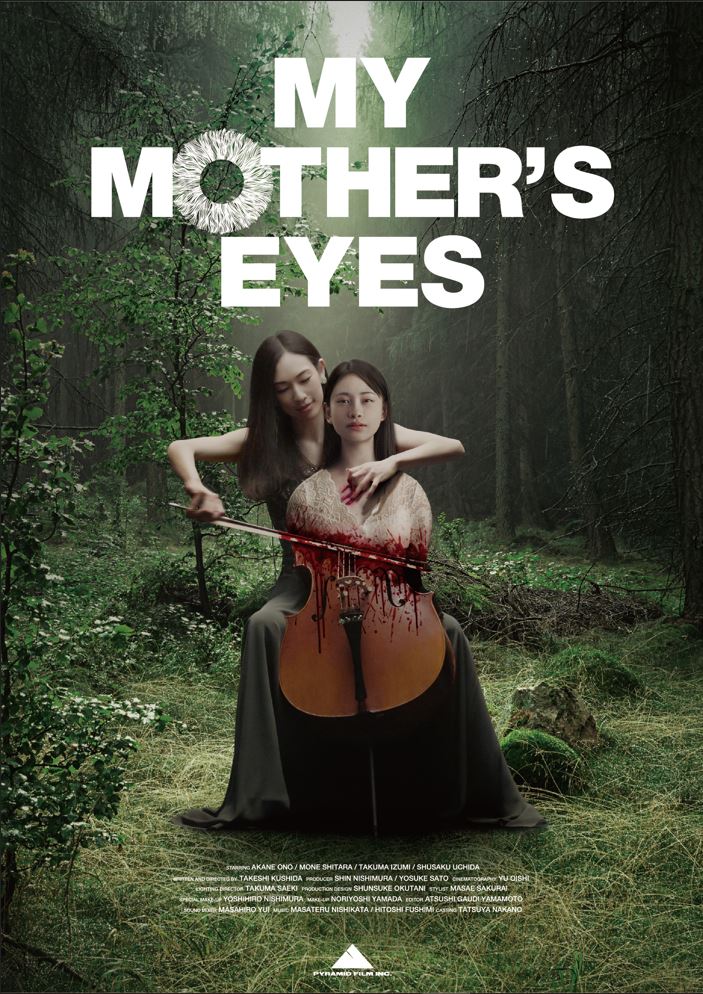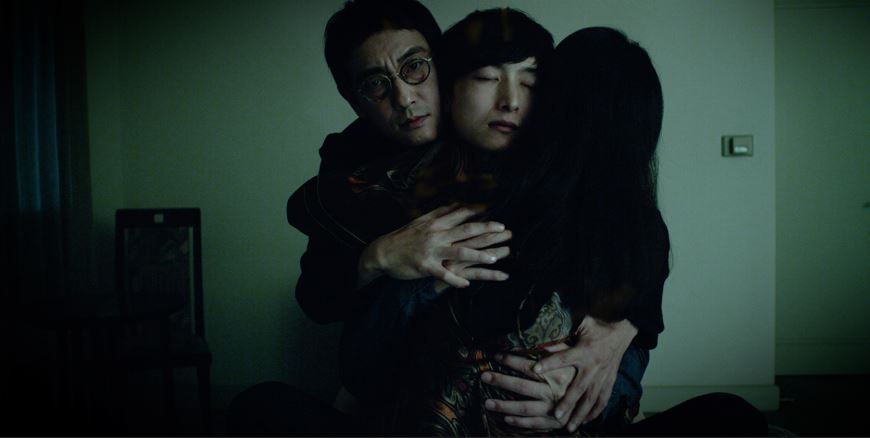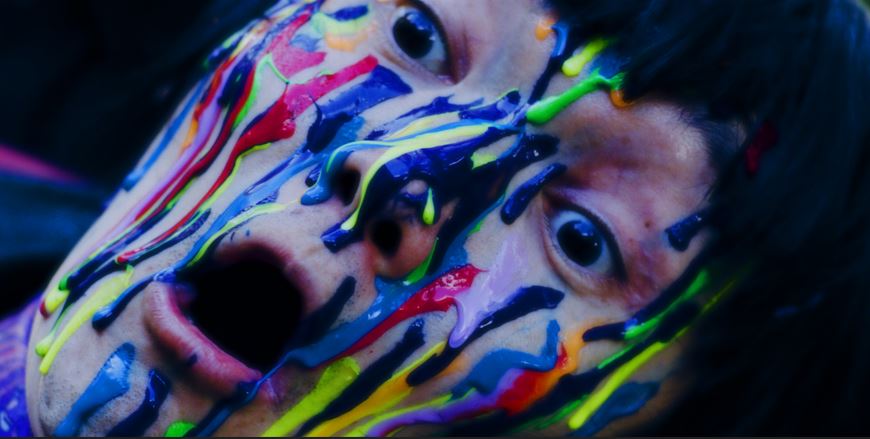
Director: Kushida Takeshi
Writer: Kushida Takeshi
Cast: Ono Akane, Shitara Mone, Uchida Shusaku, Izumi Takuma
Producers: Nishimura Shin, Sato Yosuke
Music: Nishikata Masateru, Fushimi Hitoshi
Cinematographer: Oishi Yu
Editor: Yamamoto Atsushi Gaudi
Cert: 15 (TBC)
Running time: 94mins
Year: 2023

Japanese names are presented in the traditional format of family name first, followed by given name.
What’s the story: A car accident after a cello recital leaves mother Hitomi (Ono) blind, and daughter Eri (Shitara) paralysed from the neck down. Radical new contact lenses restores Hitomi’s sight, and through VR can enable Eri to share her mother’s life. But at what cost?

What’s the verdict: Kushida Takeshi’s latest film moves at a cool, measured pace, but will elevate your heart rate as its bizarre story unfolds. Strange incidents and striking shot compositions abound, but Kushida brings a melancholic air to this memorable tale of familial sacrifice and recrimination.
Ono Akane and Shitara Mone are excellent as a mother-daughter cellist duo whose relationship is quietly self-destructing. Despite an outwardly calm, generous demeanour, Hitomi rues her life as a single mother, her daughter a living reminder of the musical career she had to sacrifice. For her part, Eri grows ever more bitter that her mother won’t be honest about her feelings of regret. The car crash, brought about by Hitomi’s degenerating eyesight, almost comes as a relief. From here My Mother’s Eyes ventures into sci-fi territory, although the genre is bent to the demands of the family drama at the centre of the story.
Through mysterious scientist Wanibuchi (Ushida), Hitomi’s eyesight is restored via radical new contact lens technology. These lenses can also broadcast to different devices, including a VR set that seemingly allows the paralysed Eri to experience not only her mother’s sight but also sensations. Payment for this life-changing tech seems to be Hitomi sacrificing her freedom to live in Wanibuchi’s large, remote house. She is tended to by Wanibuchi’s sombre, sad-faced son Satoshi (Izumi). Like Eri, he too has complicated feelings about the one parent with whom he shares a house.

Elegantly designed, Kushida’s film deploys a considered symmetry through both visuals and plot events. The whole thing can be read as allegory for the sacrifice of parenthood, Hitomi literally losing her own sight and becoming a vessel through which Eri can see the world. But, also the damage that parents can inflict upon their offspring through selfish desire. Eri’s frustration at her mother is mirrored by a revelation of how Wanibuchi is suppressing Sataoshi’s passions.
All of which may sound like hard work. But, though My Mother’s Eyes moves at a measured pace, it is engrossing from the outset. Kushida injects both horror and humour into his film, often at the same moment. Hitomi’s passion for music turns literally sexual when she “plays” an anonymous hook-up like her beloved cello. Later, music opens the door to madness and violence in a way that would make Dario Argento smile. A funny touch is that that the lens can be charged over night like any other device.
Testament to the success of Kushida’s movie is that it brings to mind numerous directors, David Cronenberg, Jonathan Glazer, Tsukamoto Shin’ya, and Miike Takashi, yet never seems like empty pastiche. Kushida’s films remain distinctly his own, and as the story here comes full circle, the director confirms himself as an exciting voice in new horror cinema.
Rob Daniel
Twitter: rob_a_Daniel
Letterboxd: RobDan
Podcast: The Movie Robcast
